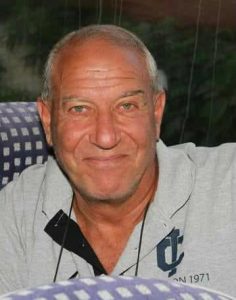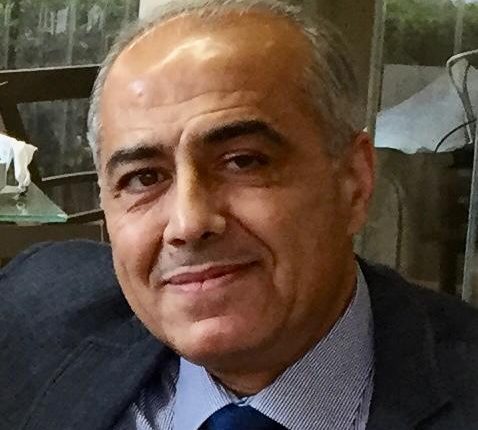THE VIENNA TALKS, THE ELUSIVE DOOR
By General Monzer El Ayoubi*
Translation: Dr. Pierre A. Sarkis

The backstage at the Grand Hotel Wien located on the Ringstrasse (beltway), does not imply that the talks conducted in its different halls, between the delegations of the 4+1 Group (Britain, France, Russia, China + Germany) with Iran concerning the 2015 agreement about its nuclear program, is running in a vicious circle, despite its return to square one, before it was approved, and then suspended by former US President Donald Trump in 2018.
And if the founder of Psycho-analysis, Sigmund Freud, used to wander in that same street and its surroundings, as one of the patrons of old Vienna, his phrase “we seek to avoid pain more than we seek to find happiness”, seems to be a logically imposed slogan on the talks, and it resonates in the mind of the US delegation stationed at the Grand Ferdinand Hotel, as it is the adage which applies also to the ambitions of the anticipated results, for the negotiating parties.
On another level, if the distance between the location of the meetings and the residence of the US delegation is only few kilometers away, the dispute between Iran and the US over the nuclear agreement is close to 11,512 km, which is the air distance separating the two capitals. Iranian President, Hassan Rouhani, said on Tuesday that the rapprochement in talks was 70%. By comparison, the distance between Washington and Vienna is also close to 70% from that which separates Washington and Tehran, 7500 km. This approach applies largely to the geopolitical reality in the region, where hostility between its fringes and alliances surpasses geographical distances. What will follow in the implementation of a new Lausanne agreement with a change in the city (Vienna), in the consequences of its implementation, and therefore, its repercussions in reaching a new regional strategic balance, will include the size and type, either in recognizing influence, or ensuring the security and interests of the main triad countries (Iran, Turkey, Israel), while cooling off the crossing points (Libya, Yemen), between them, and decrease the level of the parallel hot spots (Syria, Iraq, Southern Lebanon-Hizbollah) by confronting them, because of the impossibility of their convergence for different reasons, the least of which being the geographical positioning, which is intractable, as well as, the difference in ideologies and political systems.
In a related context, and from the onset, ambiguity surrounded the results of the qualitative subversive operation which targeted the Natanz nuclear facility in Iran, after the breaching of the electrical grid electronically, and the destruction of important equipment, in conjunction with the announcement of Iranian President Hassan Rouhani, of the installation of the new G Force type centrifuges, and the raising in the level of Uranium enrichment to 60%. But despite success in implementation, the failure to achieve the desired and indirect goal of thwarting the Vienna talks, one of the inevitable consequences of the lifting of sanctions against Tehran, points to the complicity of the Israeli Mossad in the operation. Subsequently, Bahrouz Kamalvandi, a spokesman for Iran’s Atomic Energy Organization, announced that the facility had been targeted by a sabotage operation carried out by infiltrators, and security forces identified one of the perpetrators, Reza Karimi, an Iranian national who had left the country before the incident.
Back to Vienna, Abbas Araghchi, the Political Deputy at the Ministry of Foreign Affairs in Iran, was actively holding bilateral talks with Mikhail Ulyanov, Russia’s representative to international organizations and head of its delegation, and with Wang Qun, head of the Chinese delegation, in order to coordinate positions, and define the roadmap of mutual understanding and conditions put forward. Robert Malley, the US envoy and head of the US delegation, participated in discussions and negotiations indirectly, with Enrique Mora, playing the role of coordinator and European mediator, in conveying proposals and mutual responses with the Iranian delegation.
Apparently, It seemed that the door to the agreement was elusive, not closed, nor wide open, as evidenced by the suspension of negotiations for a week, so that the heads of delegations, especially the American and Iranian would take enough time to report back to their political leadership. Iranian President, Hassan Rouhani, indicated remarkable progress, even though Araghchi’s assessment was more hawkish and conservative, as the latter had already threatened to halt negotiations, in case he felt it was a waste of time, or if prohibitive and illogical conditions were advanced. But after the talks crossed the threshold of the entrance, he considered that “the US has shown serious signs for lifting sanctions on Iran.” This was elaborated further by a member of the US delegation who revealed that the lifting of sanctions was likely to take place “as negotiations were moving forward constructively”, hinting at a key roadblock, for Iranians were demanding the maximum. Although demons usually lie in the details, it is expected that decisive positive results will materialize in the coming weeks, before June 18, when a number of successive local elections will be held in Iran for different positions, such as, the Presidency, the Islamic Councils, the midterm renewal for experts of the Leadership Council, and the Islamic Consultative Council (Shura council).
It is worth mentioning here that Iranian demands have been summarized by Washington’s retreat from imposing sanctions, in exchange for Tehran’s reduction in Uranium enrichment, and an increase in the number of International Atomic Energy Agency (IAEA) inspections, meaning the return to US participation in the nuclear agreement without any additional overt conditions. The head of the Iranian delegation recently said that “the talks have reached a stage where a joint document for the return to the nuclear deal can be worked out.” On the other hand, Washington cannot neglect the clause that guarantees the national security of its ally, Israel, while reassuring the latter through implicit or secret terms, in response to commitments made by General Lloyd Austin, the US Defense Secretary during his last visit to Tel Aviv, 10 days ago, where he stressed during a press conference with his Israeli counterpart, Benny Gantz, that Israel is a strategic partner, and that any new agreement with Iran will include guarantees for its security and interests.
Rationally, US President Joe Biden stated that “Iran’s plans to enrich Uranium at a 60% level is not helpful”, but he proclaimed his satisfaction with Tehran’s engagement in indirect talks regarding the return to the nuclear agreement. Realistically, the stage is set and ready for a new phase in relations between Washington and Tehran, that might simultaneously raise the phobia of nightmares for the Israeli enemy, but will contribute to controlling the pace of tensions, and relaxing the regional climate to the point of crystallizing emerging understandings, not least of which were leaks about talks between senior officials of the Iranian and Saudi Arabian leaderships in the Iraqi capital, Baghdad, whose first objective will be to build a climate of trust between the two sides, based on the test of the handling of the Yemeni issue, and to stop the raging war there.
Finally, it is necessary to ask: what about the path of pandemonium Lebanon is taking? Where does it fit in the midst of everything going on? Lebanon is on the sidewalk of regional anticipation, between the options of political suicide or living death. Without a government until the end of June, it has the choice of complying with foreign decisions and demands. The country consists of a plundered bank, whose transferable and non-transferable assets were seized by a group of thieves “whose money is a given for the questioner and the deprived” al Ma’arij (24) or ascension, who are unaware of wise politics, good governance, or the administration of a good state. From this perspective, the demolition of the temple becomes wisdom, and the construction of another a rightful act, prevailing over and above, second to none.
Beirut, 21/04/2021
*Scholar in Security and Strategic Affairs

